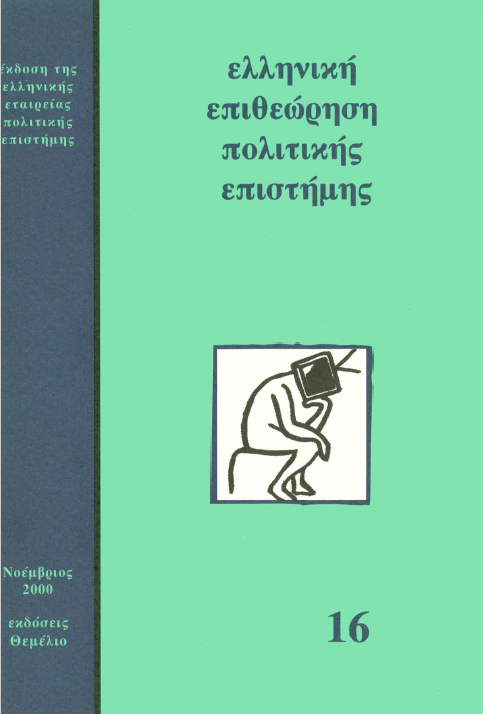Scandal-Plagued, or scandal-proof: the role of candidate personality traits as scandal immunity factors
Abstract
In this paper, I am interested in the following question: why do some public figures survive and others succumb to the effects of a scandal? Results from two experiments suggest that a political actor’s personality traits -characteristics such as competence and integrity- can offset the potentially damaging effects of a political scandal. The experiments reported here were designed to test the effects of candidate traits on scandal immunity for a male and a female politician. A candidate’s competence and honesty are varied and then participants read about his/her involvement in an illegal financial kickback scheme or a disclosure scandal. Findings lend support to the initial hypothesis that competent candidates weather the scandal somewhat better than incompetent candidates, regardless of how damaging the scandal is. While honesty does not operate as a protective shield from the negative impact of a strong scandal, it can offer scandal immunity, similarly to competence, in the case of a mild scandal. While the effects of a mild scandal are not different for male or female candidates, the ratings of the male candidate drop more sharply than those of the female candidate after the severe scandal. Men are punished more severely for their involvement in a severe scandal because it is easier to stereotype them as typical self-serving politicians.
Article Details
- How to Cite
-
Καπέλου Τ. (2017). Scandal-Plagued, or scandal-proof: the role of candidate personality traits as scandal immunity factors. Greek Political Science Review, 16, 147–186. https://doi.org/10.12681/hpsa.15190
- Section
- Articles

This work is licensed under a Creative Commons Attribution-NonCommercial-ShareAlike 4.0 International License.
Authors who publish with this journal agree to the following terms:
Authors retain copyright and grant the journal right of first publication with the work simultaneously licensed under a Creative Commons Attribution licence that allows others to share the work with an acknowledgement of the work's authorship and initial publication in this journal.
Authors are able to enter into separate, additional contractual arrangements for the non-exclusive distribution of the journal's published version of the work (e.g. post it to an institutional repository or publish it in a book), with an acknowledgement of its initial publication in this journal.
Authors are permitted and encouraged to post their work online (preferably in institutional repositories or on their website) prior to and during the submission process, as it can lead to productive exchanges, as well as earlier and greater citation of published work (See The Effect of Open Access).



